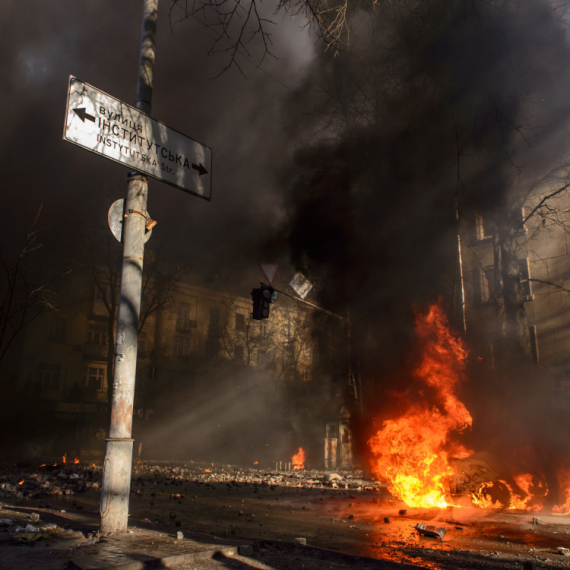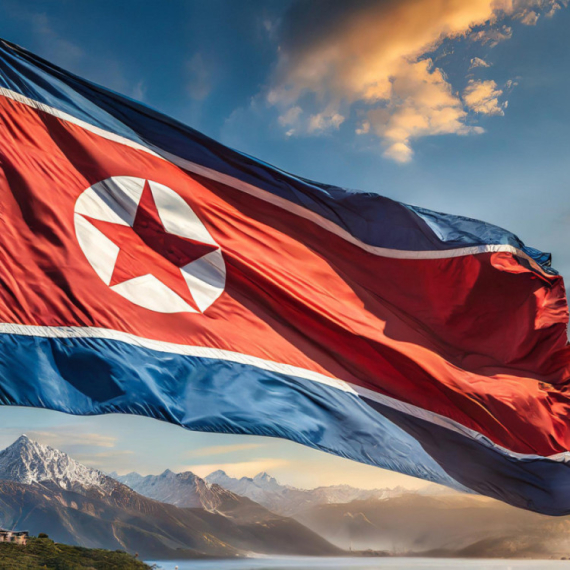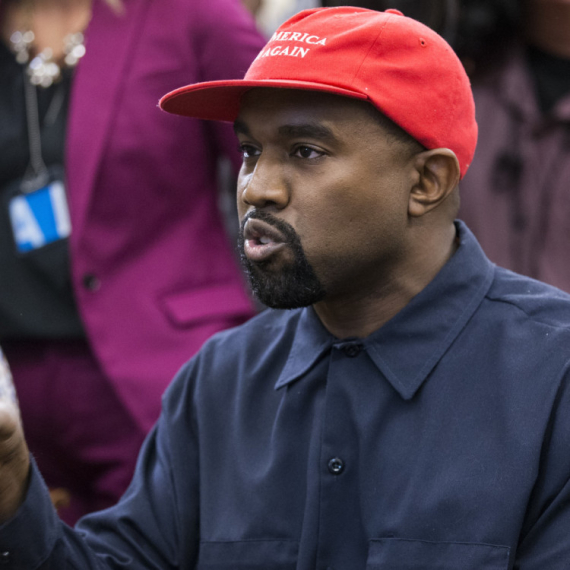Dodik walks out of tripartite meeting
Milorad Dodik left a tripartite meeting in Mostar on Saturday after a dispute with the Muslim and Croat party representatives.
Saturday, 21.02.2009.
15:58

Milorad Dodik left a tripartite meeting in Mostar on Saturday after a dispute with the Muslim and Croat party representatives. The Republic of Srpska (RS) prime minister said that Sulejman Tihic and Dragan Covic "would not accept his demand that the RS not be brought into question". Dodik walks out of tripartite meeting Dodik attended the meeting in the capacity of the Union of Independent Social-Democrats party leader, while Tihic and Covic came as leaders of the Party of Democratic Action (SDA) and the Croat Democratic Union (HDZ). Dodik said he asked that the forthcoming constitutional reform in Bosnia must not put a question mark over the RS. "I clearly told Tihic and Covic what my conditions are, when I stressed that the territorial capacity of the RS cannot be questioned," he told reporters in Mostar, and refused to offer any further statement. The meeting, which was to center on the constitutional reform issues, then fell through, although the SDA and HDZ leaders expressed their hope that the talks would continue in the future. After the so-called Prud Agreement last years the three leaders meet in Banja Luka, where they agreed to have Bosnia-Herzegovina in the future composed of four territorial units, through the country's constitutional reforms. But they have in the meantime been making contradictory public statements, Tanjug news agency reminds today. Dodik said that the four-unit deal would not jeopardize the constitutional and territorial existence of the RS, but Covic and Tihic believe that the rearrangement on the Bosnia-Herzegovina level "cannot leave the Republic of Srpska in its present capacity". This prompted Dodik to today state his conditions for continued talks on the constitutional reform. Ahead of the meeting today, he announced he would ask Tihic and Covic to state their position on whether they accept the RS in its territorial capacity – which the entity has within the Dayton Accords – as well as on maintaining "entity voting" in the common Bosnian institutions. Dodik also conditioned any further discussions with a provision in the new constitution that would give the entities the right of self-determination to secession, which would then be implemented in a referendum three years after the constitution's adoption. The post-war Bosnia is divided into two entities: the Serb RS, and the Muslim-Croat Bosnian Federation.
Dodik walks out of tripartite meeting
Dodik attended the meeting in the capacity of the Union of Independent Social-Democrats party leader, while Tihić and Čović came as leaders of the Party of Democratic Action (SDA) and the Croat Democratic Union (HDZ).Dodik said he asked that the forthcoming constitutional reform in Bosnia must not put a question mark over the RS.
"I clearly told Tihić and Čović what my conditions are, when I stressed that the territorial capacity of the RS cannot be questioned," he told reporters in Mostar, and refused to offer any further statement.
The meeting, which was to center on the constitutional reform issues, then fell through, although the SDA and HDZ leaders expressed their hope that the talks would continue in the future.
After the so-called Prud Agreement last years the three leaders meet in Banja Luka, where they agreed to have Bosnia-Herzegovina in the future composed of four territorial units, through the country's constitutional reforms.
But they have in the meantime been making contradictory public statements, Tanjug news agency reminds today.
Dodik said that the four-unit deal would not jeopardize the constitutional and territorial existence of the RS, but Čović and Tihić believe that the rearrangement on the Bosnia-Herzegovina level "cannot leave the Republic of Srpska in its present capacity".
This prompted Dodik to today state his conditions for continued talks on the constitutional reform.
Ahead of the meeting today, he announced he would ask Tihić and Čović to state their position on whether they accept the RS in its territorial capacity – which the entity has within the Dayton Accords – as well as on maintaining "entity voting" in the common Bosnian institutions.
Dodik also conditioned any further discussions with a provision in the new constitution that would give the entities the right of self-determination to secession, which would then be implemented in a referendum three years after the constitution's adoption.
The post-war Bosnia is divided into two entities: the Serb RS, and the Muslim-Croat Bosnian Federation.


























































Komentari 5
Pogledaj komentare